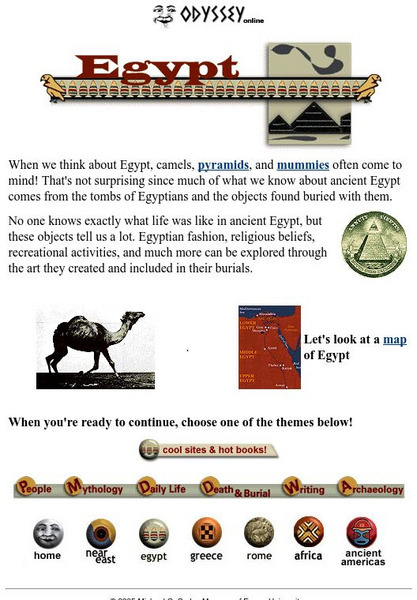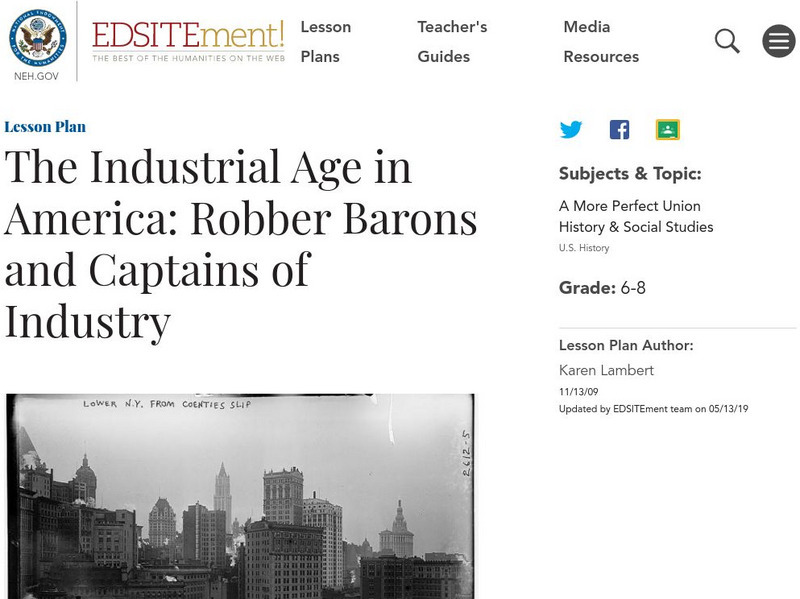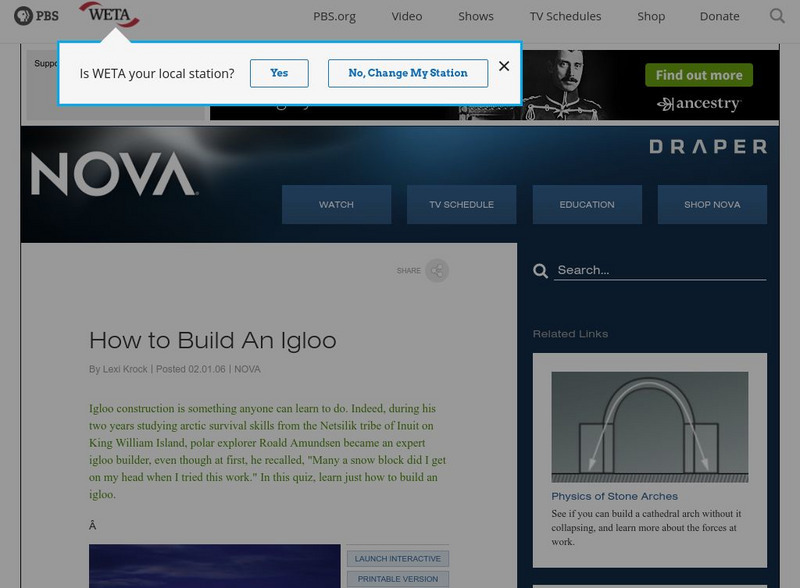Hi, what do you want to do?
College Board
Evaluating Sources: How Credible Are They?
How can learners evaluate research sources for authority, accuracy, and credibility? By completing readings, discussions, and graphic organizers, scholars learn how to properly evaluate sources to find credible information. Additionally,...
Library of Congress
Loc: Everyday Mysteries: What Is Gps?
Where are you and where are you going? Visit this site and learn the discovery and purpose of GPS, Global Position Systems.
Library of Congress
Loc: Everyday Mysteries, Who Invented Frozen Food?
Everyday Mysteries uncovers the mastermind behind the concept and process of frozen foods.
John F. Kennedy Center
The Kennedy Center: Lift Every Voice and Sing
Explore and analyze "Lift Every Voice and Sing" , a poem by James Weldon Johnson, which was set to music and is considered the "Black National Anthem."
Library of Congress
Loc: Teachers: Personal Stories and Primary Sources
Students will explore the value of personal stories and first-hand accounts when exploring history, in this case, the events of the early twentieth century, which included World War I and the Great Depression. Through this five-unit...
John F. Kennedy Center
The Kennedy Center: Migrant Workers Through the Lens of Dorothea Lange
Using song lyrics and Dorothea Lange's photographs, students will explore the hardships migrant workers faced during the Great Depression.
NASA
Nasa: Building a Winogradsky Column [Pdf]
NASA teacher's guide to building a Winogradsky Column to study microorganisms. When this guide was first released, students were invited to participate in two webcasts with NASA scientists. The conversations from those webcasts are...
Emory University
Emory University: Odyssey Online: Egypt
Site contains a wealth of information on the ancient Egyptians and their way of life. Among the things discussed include ancient Egyptian mythology, their daily life, death and burial rituals, Egyptian writing, plus much more!
National Endowment for the Humanities
Neh: Edsit Ement: I've Just Seen a Face Portraits Lesson Plan
This website contains a lesson plan in which students attempt to analyze different types of portraits for better understanding. It contains 6 different lessons in which students look at examples of portraits of children, important...
National Endowment for the Humanities
Neh: Edsit Ement: On This Day With Lewis and Clark
This website provides excellent lesson plans that detail any aspects of Lewis and Clark's expedition, from analyzing maps to studying diaries. There are links to the PBS website that will provide primary sources for the students to...
Federal Reserve Bank
Federal Reserve Bank of Philadelphia: What Is the Federal Reserve? [Pdf]
Questions like "How does the bank hold reserves?" or "How do banks make deposits?" are examples of what is explained through this banking simulation lesson plan to illustrate the purpose of the Federal Reserve.
American Chemical Society
Inquiry in Action: Exploring Moisture on the Outside of Cold Cup
In this activity, students investigate how condensation causes moisture to form on the outside of a cold cup. To see if the condensed water vapor comes from the air, students use 2 cold cups, but limit the air around one of them by...
American Chemical Society
Inquiry in Action: Explore Moisture on Outside of a Cold Cup (Dry Environment)
Regardless of the time of year or region of the country students live in, they have likely experienced moisture on the outside of a cold drink or another cold surface. In this activity, students will prepare a sample of humid air since...
eSchool Today
E School Today: Elements, Compounds, Substances and Mixtures
Learn about the classification of matter based on whether the chemical composition is pure or a mixture. Understand the definitions of elements, compounds, substances, and mixtures, and what the differences are between them. Five types...
eSchool Today
E School Today: Your Cool Basics on Water Shortage
Despite seventy percent of the world's surface being covered with water, there is a potential shortage of this natural resource. Only a small percentage is fresh water and much of that is inaccessible or threatened. Learn about fresh...
eSchool Today
E School Today: Your Cool Basics on Forest Preservation
Learn about the different kinds of forests, how forests are structured, their importance, deforestation and its impact, forest degradation, and what individuals can do to protect forests.
eSchool Today
E School Today: Your Cool Facts and Tips on Air Pollution
Looks at air pollution, its causes and impact, common pollutants, and what individuals and governments can do to combat it.
eSchool Today
E School Today: Your Cool Facts and Tips on Light Pollution
What is light pollution and why should we care about it? Learn what it is, the different types, sources of this type of pollution, the impact it has, and ways to combat it.
National Endowment for the Humanities
Neh: Edsit Ement: Lesson 2: People and Places in the North and South
Lesson explores the causes of the Civil War and the basic disagreements between North and South through the use of primary source documents, photographs, and census information. Includes two detailed student activities and resources for...
National Endowment for the Humanities
Neh: Edsit Ement: Not Everyone Lived in Castles During the Middle Ages
Forget the romantic view of the Middle Ages. What was it really like? Lesson plan focuses on exploring the lives of the peasants, craftsmen, and monks. Hyperlinks lead to great illustrations.
National Endowment for the Humanities
Neh: Edsit Ement: Robber Barons and Captains of Industry
A very thorough lesson plan from EDSITEment that explores the role of the robber barons in American industry in the 19th century. It explores the question of whether the robber barons were harmful or "Captains of Industry." You'll find...
PBS
Pbs Learning Media: Nisqually Glacier at Mount Rainier
Observe the Nisqually Glacier at Mount Rainier in this video segment from NatureScene. [4:07]
PBS
Pbs Learning Media: Igloo 101
Learn what it takes to build an igloo from the best kind of snow to the most effective tools and other little-known facts about these traditional Canadian Inuit structures in this interactive activity from NOVA.
PBS
Pbs Learning Media: Waterslides
Join Valerie and Margie as they devise ways to measure how fast and how "wild" two water slides are in this video from DragonflyTV. [3:12]











![Nasa: Building a Winogradsky Column [Pdf] Activity Nasa: Building a Winogradsky Column [Pdf] Activity](https://static.lp.lexp.cloud/images/attachment_defaults/resource/large/FPO-knovation.png)



![Federal Reserve Bank of Philadelphia: What Is the Federal Reserve? [Pdf] Lesson Plan Federal Reserve Bank of Philadelphia: What Is the Federal Reserve? [Pdf] Lesson Plan](http://lessonplanet.com/content/resources/thumbnails/409975/large/bwluav9tywdpy2symdiwmduymc0xmdqxmc03zmj5zmguanbn.jpg?1589982798)










